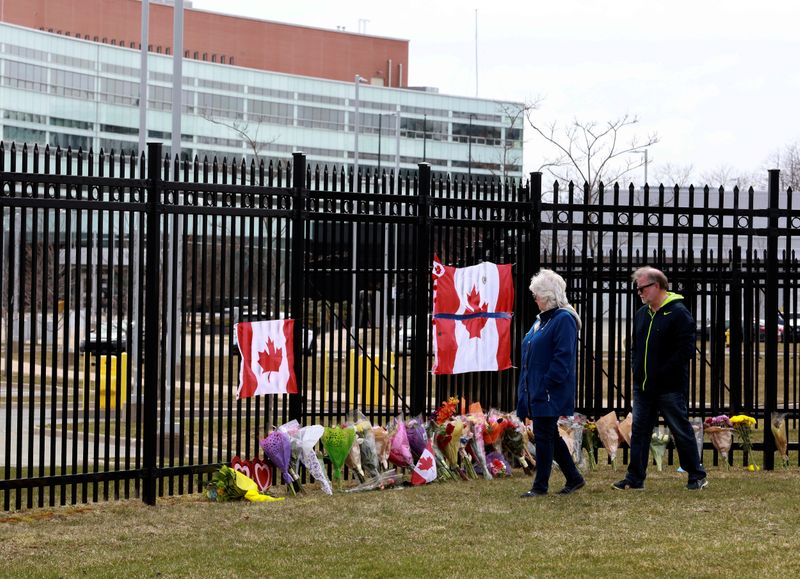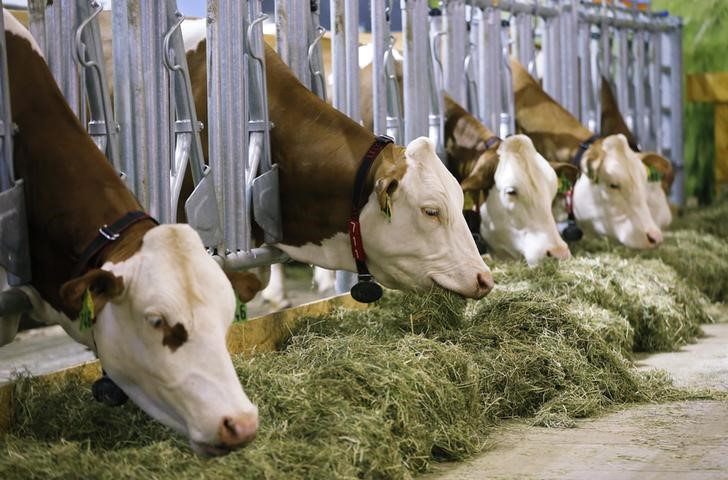By Kelsey Johnson and Rod Nickel
OTTAWA/WINNIPEG, Manitoba (Reuters) - The Canadian government is not expecting a beef shortage despite the spread of the novel coronavirus in certain meat-packing plants, though prices may rise, Prime Minister Justin Trudeau said on Tuesday.
Trudeau added that beef producers are placing a priority on supplying the Canadian market before exporting products.
Canada, one of the world's biggest beef and pork exporters, has had several plants idled or slowed as coronavirus inspections spread. Cargill Inc on Monday said it would idle its High River, Alberta, beef plant because of an outbreak.
"We are not at this point anticipating shortages of beef, but prices might go up," Trudeau said at a briefing. "We will of course be monitoring that very, very carefully."
The tally of coronavirus cases related to the Cargill plant has reached 401, Alberta Chief Medical Health Officer Deena Hinshaw said. Another 77 cases have occurred at the JBS SA beef plant at Brooks, Alberta.
North American meat demand has plunged since the pandemic accelerated, as a loss of sales to restaurants, which have closed, outweighs additional revenue from grocery stores.
Beef processors have assured Canadian officials they will prioritize domestic sales, their largest and most stable market, said Oliver Anderson, spokesman for the country's agriculture minister. The government has not imposed export restrictions, he said.
JBS has reduced production to one shift as of Tuesday at Brooks due to increased absenteeism, said spokesman Cameron Bruett.
Ottawa is "very concerned about outbreaks in the food supply chain," Health Minister Patty Hajdu told reporters.
Meat processors have taken numerous measures, such as erecting physical barriers and staggering breaks. But those steps and supplies of protective equipment are not applied equally in all plants, said Paul Meinema, national president of the United Food and Commercial Workers. The union represents employees in the country's biggest meat factories run by Cargill, JBS, Maple Leaf Foods and Olymel.
The plants should slow processing speeds and even shut them down before infections multiply, Meinema said.
Even some government inspectors who work in the plants lack face shields and non-surgical masks, said the Agriculture Union, which represents them.
"There is obviously a shortage," Agriculture Union President Fabian Murphy said. Seven inspectors in the Cargill plant have tested positive for the novel coronavirus, he said.
Canada's coronavirus death toll was 1,728 as of Tuesday, a 7% rise from the previous day. There have been 37,382 cases reported.
Ontario Premier Doug Ford said a framework to reopen the economy of Canada's most populous province would come in a few days. On Monday, Ford said any return would be gradual.

Air Canada, the country's biggest airline, said it would suspend flights between Canada and the United States after April 26.
